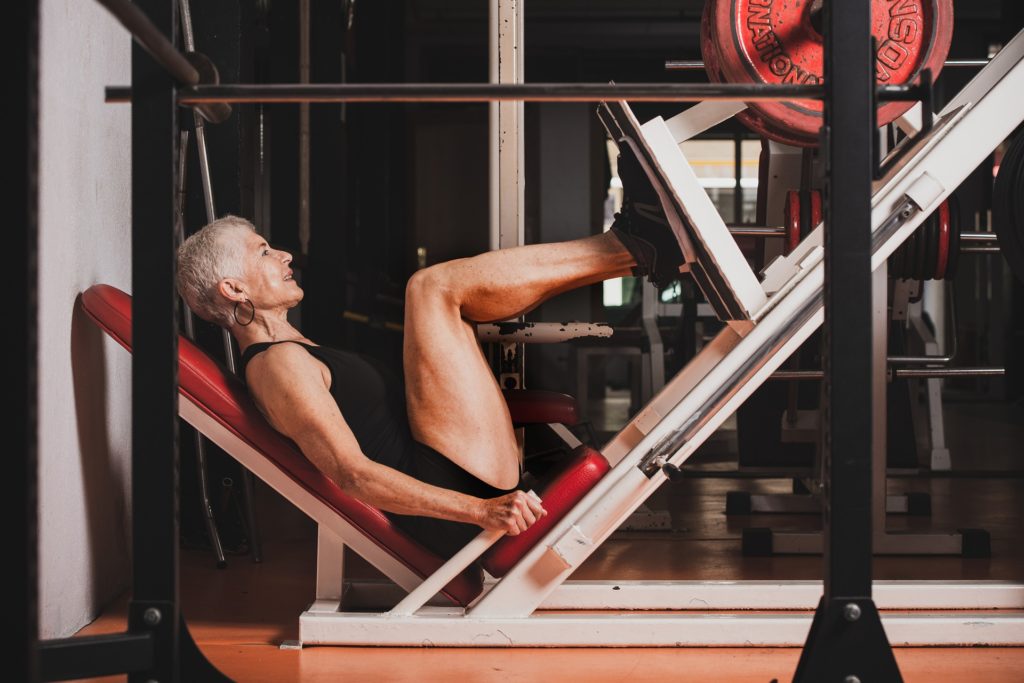In this post we discuss why the future of preventive health care should be strength training for every body and what that would look like.

Picture the scene, it’s 2050 and we have somehow avoided climate catastrophe and war with China.
You go to your Doctor complaining of shoulder pain. She checks you over and tells you there doesn’t seem to be anything seriously wrong.
She notices you’ve recently turned 50 however and after a brief discussion about your current exercise regime, she recommends you start strength training.
You’re given a prescription that enables you to access a local facility twice a week at a time of your choosing.
On your first visit you’re introduced to the various machines by a knowledgeable staff member. The machines use intelligent software to assess you for range of motion deficits at each of your joints. They also carry out strength tests to establish a base line and identify any large asymmetries.
This data is used to prescribe a bespoke strength training programme. The machines are so versatile they can serve anybody from joint replacement patients through to elite level athletes.
What happens when you get stronger
After a few visits you begin to notice your shoulder is feeling better. Not only that, the back pain that had been part of your life for as long as you can remember has disappeared.
You feel like you have more energy and you’re sleeping better. As a result you dust off the bike you haven’t used in years and start taking local trips.
Your daughter asks you to play tennis with her. Why not you say. Your shoulder is feeling strong and the fear you always had of getting injured has receded. You seem to have more confidence in your body.
Back at the Doctor for your yearly health check, she informs you that both your blood pressure and cholesterol levels have improved. There’s no need to consider medication any more.
You’re happy but not surprised. Being active again has inspired you to improve your diet. Something the on-site dietician was happy to help you with at the gym.
You feared getting older but now realise more of the ageing process is under your control than you previously thought. You’re optimistic about the future and decide to leave your spouse for the tennis coach you met at the club.
OK OK, I slipped the last sentence in there to make sure you were still concentrating.
Am I dreaming here though? No not really.
I see this scenario play out on a regular basis with the people I work with. Some of whom had given up on their bodies and thought their active lives were behind them.
That was until they realised it was just a question of getting their training right.
The Nordic example
Whenever I walk into a gym and see people in their 60s, 70s and 80s strength training, I smile.
This shouldn’t be the unusual sight it sometimes is in the U.K. It should be standard practice.
Our friends in the Nordic countries realised this some time ago. They boast some of the highest participation rates in muscle strengthening exercise in Europe.
This together with a focus on improving diets has seen Finland for example, go from the unhealthiest country in Europe, to one of the fittest countries in the world in just 30 years.
And this with what must be the worst weather of any country in the EU.
Strength training for everybody
The evidence is clear, everybody over the age of 50 should be participating in strength training on a regular basis.
The current reality is this however:
- Too few people are aware of this fact (including medical professionals).
- Even fewer people know how to strength train properly (including fitness professionals).
The solution in both cases is education.
Summary
I work to provide the people who trust me with their health the best results I can.
There’s a bigger picture here though. What if this information was available to everybody?
What would that do?
The statistics and graphics that accompany studies on exercise will give you an idea. But what about the intangible benefits of having the freedom to do what you want?
Playing tennis with your daughter on a beautiful summer’s evening for example. Or taking that walking trip to the mountains you’ve always dreamed of.
Strength training gives you the foundation to live a life without unnecessary physical impediments. In my opinion it should be available to everybody.